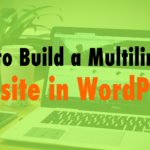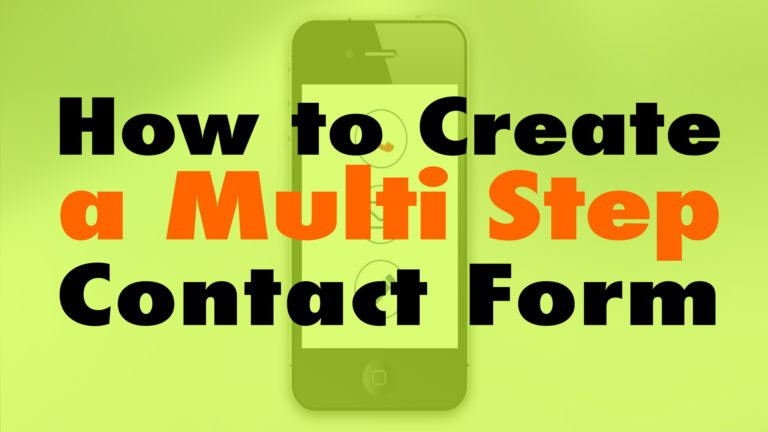How to Build a Multilingual Website in WordPress
- WPML 02:11
- Polylang 03:38
Read the full episode transcript below:
00:28 David Blackmon: Welcome to another episode of WP The Podcast, i’m David Blackmon.
00:35 Tim Strifler: And i’m Tim Strifler
00:38 David Blackmon: Today in episode 753 we’re going to talk about how to build a multilingual website on WordPress. Now what does this mean. I’ll let Tim define it in a second, um but it’s a little bit different than just translating your site. A lot of WordPress websites and Google have it built in, well they’re translate like the back end but we’re talking about something totally different. So what do we mean when we say multilingual website Tim?
01:06 Tim Strifler: Yeah so multilingual website is one website that offers the content in multiple languages. And so for companies that serve as different audiences and different countries that speak different languages you can offer the content in multiple language. And so that’s basically what it is. And so rather than creating separate websites for each language you basically have one website, and you use tools plugins that we’re going to talk about today, that will assist you in the translation. So that you don’t have to have you know three four five different um installs of WordPress and five different sets of plugins to manage and five different sets of themes to update and and all of that different stuff. It’s one site that you can basically have you know, if you have five different languages five different versions of the piece of content and so it makes it really really easy.
02:07 David Blackmon: Awesome, you want to start you want me to start?
02:10 Tim Strifler: Um i can go ahead and start. So WPML, they’re uh it stands for WordPress multilingual and i would say they’re the original multilingual solution for WordPress. They’ve been around forever i think i used uh this back in like 2012/2013. And so it’s been around for a very long time. And so basically the way WPML works is once you install and set it up and everything, you when you’re creating a piece of content you can toggle between the different languages that you have pre-selected. And then you can input the the languages for each post separately. And so uh it basically gives you three four five different versions however many languages you want of that same piece of content, and then on the front end of the site there’s a toggle with the flags so you can toggle between the english version of the site that’s one of your languages, or the french version for example. So as far as the url goes it’s like yourdomain.com fr and then whatever the page is. So it it puts everything into that kind of sub category of that language, and it makes it really good for for SEO too. Google loves having uh multilingual content. Um now one thing i do want to say before David talks about the next one, is i’m kind of i go back and forth like David and i both our websites serve uh people in so many different countries all over the world. And i’ve never gone the multilingual route um because one i think web design in general people are more used to speaking English. Because html is in english for example. And so people are so our customers typically are more familiar with english or really comfortable using translators and stuff like that. But then also a lot of the modern web browsers specifically Chrome, with one click a user can translate the entire page automatically. And so um so that’s basically the reason why i haven’t done it but because our customers are web designers developers in general more savvy. They can do that but obviously if you’re selling you know to consumers uh in different areas of the world, speak different languages, they’re not as tech savvy going the multilingual route may be the better option and it’s worth the extra expense and work to to get that done. Um so I think, sorry one last thing i want to say before i turn it over to David is i think you can do some like auto translate as you’re writing the content, but again it’s auto translated. So it’s not going to be perfect. So typically i think the general rule for multilingual is have a native speaker do the translating to get those nuances rather than having a automated translation that just does it for you based off of artificial intelligence.
05:21 David Blackmon: Yeah i can tell you from personal experience when i’ve used the google translate to try to communicate with someone and they’ve looked at me like “huh?”, it tells me that that translation automatic translation isn’t the best. The other one that we’re going to talk about, and this one that the main difference between this one and the WPMU, WPML that Tim talked about, Poly Lang is that it has a free version and a pro version. So if you want to test out multilingual before you even dip your toe in the water, because i don’t think WPML has a free version. This one does, and it has over 600 000 users and it’s got pretty good ratings on wordpress.org you know. I don’t want to beat a dead horse, but this thing will translate your content for you. However as we stated you may want to get a native speaker to that you know um region of the world to confirm that it’s that it is correct and stuff. Because conjugation slangs different you know US is totally different you know, than a lot of other countries. Some like when a lot of our team is is Polish and they speak English you know. They all learn English in school and it’s not their primary language but they’re fluent in English, and there’s a lot of English words where they don’t understand what you know what does that mean. And i’m using you know, just colloquialisms from my own experience and my region of the country in the United States which is very different than Tim’s region of the country in the United States. Tim might not even understand some of the words that are in South Louisiana you know. He may be like “huh what’s that what is what’s boudin” you know. Or what’s these normal words to me aren’t normal words. So absolutely make sure, if you go that route to get yourself a native speaker and stuff Even though it says it translates the content because it’s not going to be 100 um you know the what i like about Plylang is it’s easy to use. It’s efficient um you know it’s SEO friendly just like WPML. Both of these are SEO friendly, you absolutely want to make sure that you’re not putting things on your site that is going to screw you with the search engine’s bottom line basically. So you want to make sure that the plugins that you add to your websites do take that into consideration and stuff, when they build them and whatnot. So uh two great plugins for multilingual websites WPML and Polylang. Check them out we’ve got the links in the description uh of youtube as well as on the website and in the podcast platform that you’re listening this. To listening to this podcast on while i’m saying that i’m going to go ahead and make a a request and a plea. If you’re enjoying WP The Podcast, and you are ecstatic that Tim and i are doing podcast daily, again it would be amazing if you could give us a like a thumbs up and a subscribe if you’re watching us on YouTube. If you’re listening to us on your favorite podcast platform like Spotify or Apple Podcast or any of those platforms if you would give us a review it helps people find the podcast better. Um and honestly we just like it we think it’s cool when people you know give us a rating and stuff. And be honest we’re not you know.. i mean would love it if you gave us a five star, but uh you know give us feedback if there’s something we can do better and improve upon let us know. So yeah there’s that. Tim i think that’s it, got another great topic for tomorrow. We’re going to talk about how to make your website fully accessible meaning that’s what it means we’ll tell you what it means tomorrow. Tim until tomorrow i’ll see you then.
09:40 Tim Strifler: Take care, bye.

Did you Enjoy this Episode?
- Will you consider sharing it online? Just click one of the share buttons below!
- Will you leave us a review? 🙂
- Have a question, or a topic request? Let us know in the comments below!
Want to Connect with David & Tim?
- David:
- Tim:








